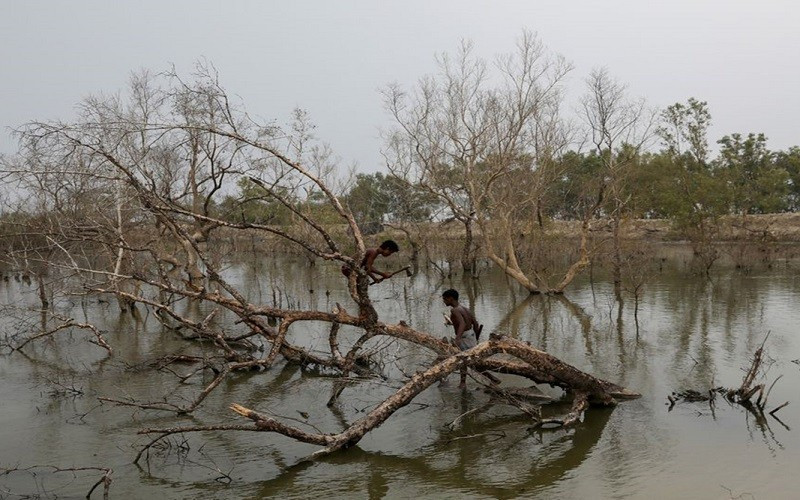French President Emmanuel Macron said that efforts in the fight against climate change and poverty eradication have a close linkage, so no country in the world should choose to prioritise solving just one of these two challenges.
However, according to the French President, the global financial system is no longer suitable to solve many problems at the same time, so the Summit for a “New Global Financial Pact” in Paris on June 22 and 23 was an opportunity to restructure the global financial system to better meet the world's climate goals.
The French President called for increased public and private funding to tackle growing inequalities in efforts to meet common challenges.
Macron warned that without the private sector, the world would not be able to tackle much of today's challenges.
According to a report by Net Zero Tracker, nearly half of the world's largest businesses were committed to achieving their carbon-neutral goal by 2050, but only a few have made reliable action plans.
Pointing to a series of challenges facing developing countries, United Nations Secretary-General Antonio Guterres stressed that more than 50 countries around the world are in default or on the verge of default.
According to the UN Secretary-General, the current global financial structure is outdated and unfair, and even exacerbates inequality; it cannot fulfil its mission of providing a safe financial network for developing countries.
This Summit also focused on climate change-related policies of major international financial institutions such as the IMF and WB, in the context of increasing calls on multilateral development banks to strengthen support for developing countries to access capital in response to climate change.
Although many policies have been launched to support the countries to respond to climate change, both two international financial institutions acknowledged that their financial capacity is not enough to meet the needs of the developing economies, which was estimated by the IMF to 1 trillion USD per year by 2025.
In the framework of the Summit, IMF Managing Director Kristalina Georgieva announced a new step in joint efforts to tackle climate and poverty issues. Accordingly, rich countries have achieved the goal of reallocating 100 billion USD in IMF funds to respond to climate change and poverty in developing countries.
This is extremely positive news because the IMF still needs an additional 40 billion USD to achieve the target in the plan set out from 2019.
Meanwhile, World Bank President Ajay Banga announced a series of measures to support countries affected by natural disasters, notably debt relief for poor countries.
The WB’s move aims to increase financial support for low-income countries to respond to the crisis, reform financial systems, and free up funds to respond to climate change.
Previously, the WB also sought double funding for climate and launched an action plan to deal with global warming for the 2021-2025 period.
Expressing concern about the risk of the world going astray in its actions to achieve the sustainable development goals for many times, the UN Secretary-General emphasised that only collective efforts can help the world overcome common challenges.
Despite many differences in policies and implementation of actions, leaders of countries and international organisations emphasised the role of solidarity, cooperation, and coordination in building an inclusive and transparent global financial system with people-first priority and expressing the voices of developing and underdeveloped countries.
















